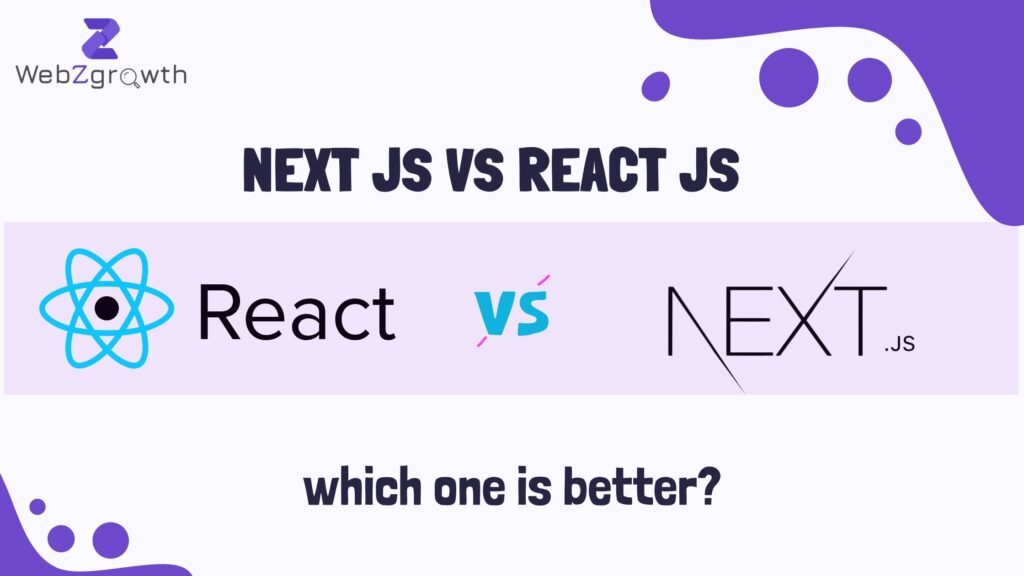When it comes to web development, choosing between Next.js and React.js can be tricky. Both are popular among developers, but they serve different purposes. If you’re wondering which one is better for your project, you’re in the right place. Let’s break it down in a simple, conversational way so you can decide what works best for you.
What is React.js?
React.js is an open-source JavaScript library for building user interfaces. Developed by Facebook, it allows developers to create dynamic, high-performing, and reusable UI components. It’s widely used for single-page applications (SPAs) and is loved for its flexibility.Pros of React.js:
✅ Component-Based Architecture – Makes development modular and scalable. ✅ Fast Rendering with Virtual DOM – Improves UI performance. ✅ Strong Community Support – Tons of resources, tutorials, and third-party libraries. ✅ Easy to Learn – If you know JavaScript, picking up React is easy.Cons of React.js:
❌ SEO Challenges – React renders on the client side, which may not be the best for SEO. ❌ Boilerplate Code – Requires additional setup for routing, state management, and API handling.What is Next.js?
Next.js is a React framework that enhances React’s capabilities by adding server-side rendering (SSR), static site generation (SSG), and built-in SEO optimizations. Created by Vercel, it is an excellent choice for fast, SEO-friendly, and scalable web applications.Pros of Next.js:
✅ SEO Optimization – With SSR and SSG, your content gets indexed faster. ✅ Automatic Code Splitting – Improves performance by loading only what’s needed. ✅ Built-in Routing – No need to install additional libraries for navigation. ✅ Faster Load Times – Due to pre-rendering and image optimization.Cons of Next.js:
❌ Learning Curve – More complex than React for beginners. ❌ Increased Build Time – Static site generation can take longer for large sites.Next.js vs. React.js: Key Differences
| Feature | React.js | Next.js |
|---|---|---|
| Rendering | Client-Side | Server-Side & Static |
| SEO-Friendly | ❌ No | ✅ Yes |
| Performance | Medium | High |
| Routing | Manual | Built-in |
| Ease of Use | Easier | Slightly Complex |
When to Use React.js?
- If you are building a SPA (Single-Page Application).
- If SEO is not a top priority.
- If you want a flexible and component-based UI.
- If you prefer a lighter, minimal setup.
When to Use Next.js?
- If you need an SEO-friendly website.
- If you want faster performance with pre-rendering.
- If you’re building an e-commerce or content-based site.
- If you need a framework that offers better scalability.
So, Which One Should You Choose?
If SEO and performance are critical for your project, Next.js is the winner. But if you need flexibility and are comfortable handling additional configurations, React.js is still a great choice. At WebZGrowth (https://webzgrowth.com/), we specialize in building high-performing React and Next.js websites. If you need help choosing the right framework for your business, feel free to reach out! What are your thoughts? Have you worked with React.js or Next.js before? Let us know in the comments!Visit our website to learn more about how we can help you craft content that brings measurable results. Fill Out the form and Our team will reach out to you Follow us on Instagram – For tips and tricks to improve you business Linkedin – For more information updates




